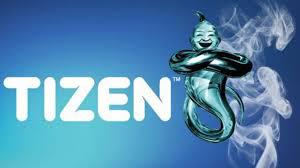Since its introduction four years ago, Google Inc. (NASDAQ:GOOG)‘s Android has taken the world by storm, rising to a global market share of 68.3% according to research firm IDC. In the developed world, Apple Inc. (NASDAQ:AAPL)‘s iOS has been the benchmark Google is chasing, but in emerging markets, Android is almost unchallenged. The platform is free to developers and comes with a wide breadth of applications that have allowed the OS to spread. Apple has essentially stayed out of the emerging markets, and other competitors are just beginning to wake up to the importance of these markets.

Despite this global dominance, Android is not without some severe shortcomings that have left a real opening for competition. Spearheading one such effort is a partnership involving Samsung, Intel Corporation (NASDAQ:INTC), Huawei, and a slew of other Asian players. You must love the irony that Tizen, the new OS, is largely the product of Samsung, one of the biggest drivers of Google Inc. (NASDAQ:GOOG)’s success and the largest Android provider by market share by a huge margin.

Samsung is set to release the first Tizen device near the end of the summer. The company has promised a premium smartphone that will be at least on par with the recently released Galaxy S4. If the new OS is well received, it has the potential to completely disrupt Android’s emerging-market business, particularly in Asia, and potentially in Africa. Given the growth rates in these regions, the release of Tizen has to be the most important development in the smartphone arena since Android itself.
The political side of the smartphone wars
In January 2010, Google Inc. (NASDAQ:GOOG) found itself in the midst of a philosophical battle with none other than the Chinese government. Google was forced to censor certain search results at google.cn that the Chinese government deemed unacceptable. In response to the impasse, Google began rerouting Chinese users to its Hong Kong site, thereby circumventing the need to obey Chinese laws. Also deeply tied to the situation was the government’s desire to have “monitoring” access to Chinese users. This move was not well received, and the company was quickly forced to leave the country entirely.
While the connection between a political dispute on censorship and smartphone dominance may not be immediately apparent, remember that everything Google Inc. (NASDAQ:GOOG) does is tied to search. Everything. What this means is that Android, and the Google apps that are native to it, are tied to a search engine that isn’t welcome in China. Since Google’s historic departure, the company’s market share has been gobbled up by various players native to the region. Baidu.com, Inc. (ADR) (NASDAQ:BIDU) , for example, which is known as the Google of China, has become the preferred browser of many users.
How this translates into smartphones is that in many cases, manufacturers selling devices in this part of the world must include user interfaces which that a primary purpose of working around much of Android’s native functionality. If you’re wondering why Samsung, Huawei, or others would still choose Android, keep in mind that it’s an essentially open-source, free software supported by 700,000 apps and enjoying almost global acceptance. In simpler terms, Android represented the path of least resistance for companies that were eager to get to market and didn’t necessarily possess the resources — at least at the time — to develop their own OS.


